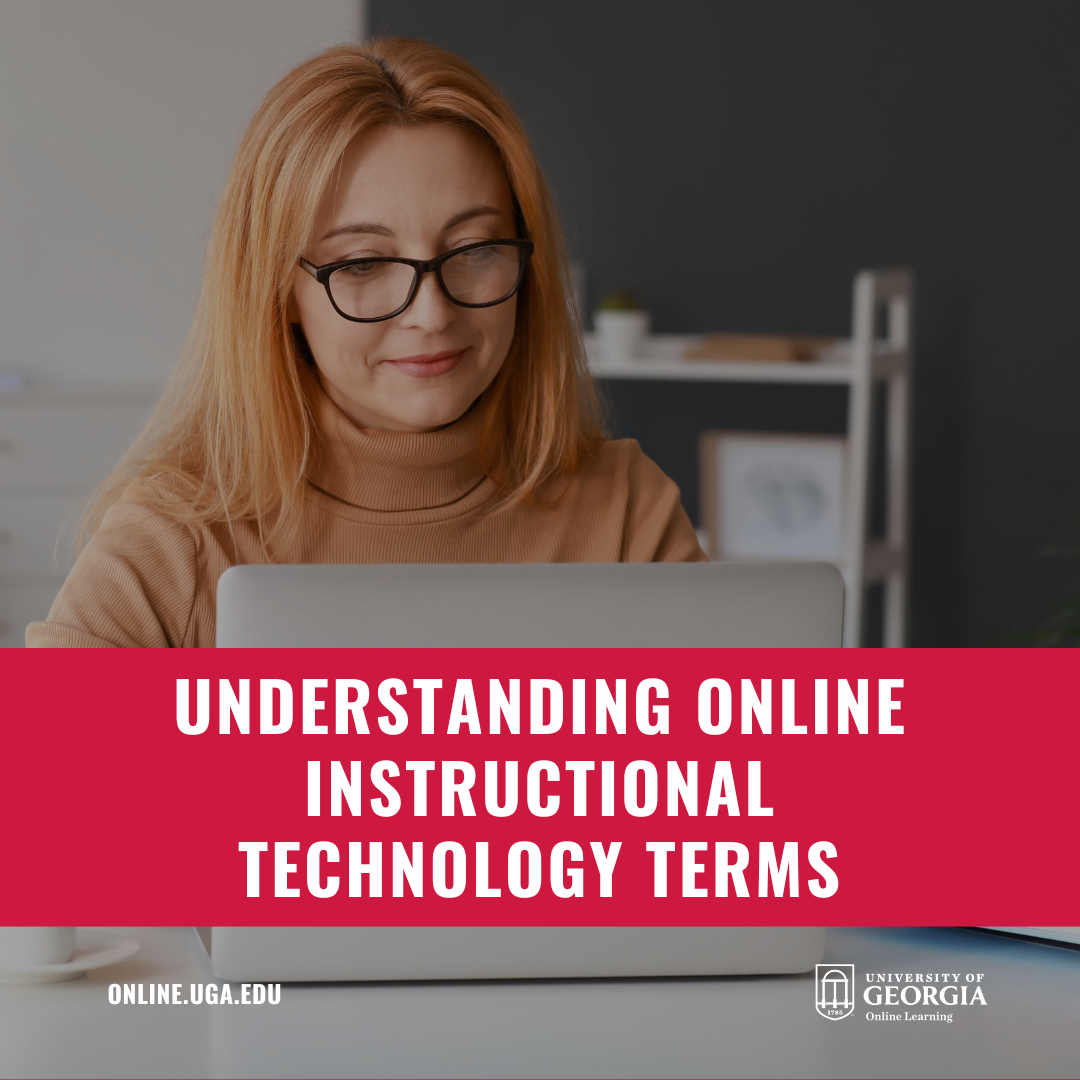Understanding Online Instructional Technology Terms
Understanding Online Instructional Technology Terms
Updated 11/20/2023
 When you begin your online degree you will encounter an unfamiliar vocabulary. Terms like synchronous and asynchronous may have never crossed your mind before seeing them associated with your online classes. To be able to fully understand your responsibilities and get the most out of all your classes, learning your online degree’s jargon can be very helpful.
When you begin your online degree you will encounter an unfamiliar vocabulary. Terms like synchronous and asynchronous may have never crossed your mind before seeing them associated with your online classes. To be able to fully understand your responsibilities and get the most out of all your classes, learning your online degree’s jargon can be very helpful.
To help navigate what may feel slightly foreign to you, below are just a few of the most common terms that you may hear as you progress through your online degree:
- Accessibility – A person with a disability is provided an equal opportunity to acquire information, receive a service, and participate in a learning experience with ease of use and independence. Accessibility must meet the Americans with Disabilities Act (ADA) standards which include Web Content Accessibility Guidelines (WCAG) and comply with the Individuals with Disabilities Education Act (IDEA) and Section 504 of the Rehabilitation Act.
- Asynchronous Learning – Learning that occurs with lapses in time between the interactions of two or more people. Examples include email, online discussion forums, message boards, blogs, podcasts, etc.
- Differentiated Instruction – Adjusting and adapting instructional methodology, programs, and materials to address individual students’ learning needs.
- Learning Management System (LMS) – Technology platform through which students access online courses or digital instructional materials. An LMS generally includes software for creating and editing course content, communication tools, assessment tools, and other features for managing the course.
- Open Education Resources (OER) – Any type of educational materials that are in the public domain or introduced with an open license (free for public use). The materials can be full-year scoped and sequenced or individual lessons or units. Learn more about OER materials by visiting Creative Commons.
- Responsive Design – An approach to website design that automatically scales webpage content and elements to match the screen size on which it is viewed. It keeps images from being larger than the screen width and prevents visitors on mobile devices from needing to do extra work to read the content.
- Syncing – Process of updating apps and software to or between specific devices.
- Synchronous Learning – Learning in which participants interact at the same time.
- Virtual Private Network (VPN) – A VPN is a service that allows you to connect to the internet via an encrypted tunnel to ensure your online privacy and protect your sensitive data. VPNs are commonly used to secure connections to public Wi-FI hotspots, hide IP addresses, and make your browsing private.
Although this list covers a few terms that may be confusing for new online students, remember that you can always reach out to your professors with your questions. The Online UGA faculty want to see its students succeed and are here to support you throughout all of your academic endeavors.
Read the original article here.
